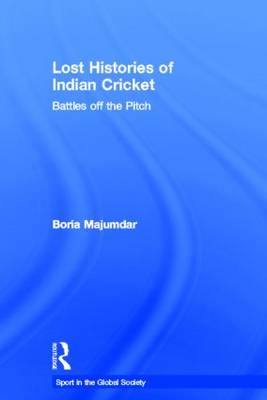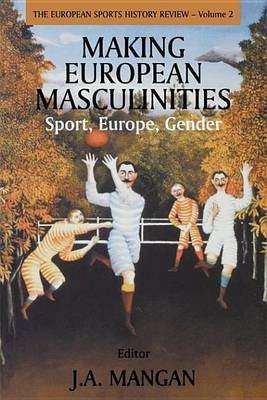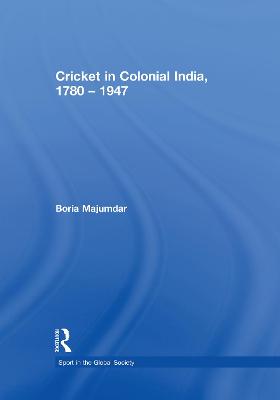Sport in the Global Society
5 total works
A Social History of Indian Football
by Kausik Bandyopadhyay and Boria Majumdar
A Social History of Indian Football covers the period 1850-2004. It considers soccer as a derivative sport, creatively and imaginatively adapted to suit modern Indian socio-cultural needs - designed to fulfil political imperatives and satisfy economic aspirations. The book is concerned with the appropriation, assimilation and subversion of sporting ideals in colonial and post-colonial India for nationalist needs.
The book assesses the role of soccer in colonial Indian life, to delineate the inter-relationship between those who patronised, promoted, played and viewed the game, to analyse the impact of the colonial context on the games evolution and development and shed light on the diverse nature of trysts with the sport across the country. Throughout this book, soccer is the lens that illuminates India's colonial and post-colonial encounter.
This volume was previously published as a special issue of the journal Soccer and Society.
This is the first book to address the gap in the literature linking the physical culture of the ancient world with the beginnings of modern sport, this original book traces the history of the evolution of a variety of sport, games and physical education from 450-1650AD across Western Europe.
Drawing on primary sources, this book takes a thematic approach, looking at the changing nature of geopolitical structures, educational systems, religious institutions and the practice of warfare and medicine and goes on to trace the disappearance of ancient physical culture with its gymnasia, gladiators and chariot races, the invention of a new physical culture based on chivalry around 1000AD, the transformation of that culture in the Renaissance, and its disappearance around 1650 under the influences of new science.
Offering a new and original perspective on the relationship between sport and society, this unique study will be of great interest to all historians of sport and culture.
Lost Histories of Indian Cricket studies the personalities and controversies that have shaped Indian cricket over the years and brings to life the intensity surrounding India's national game.
It may be true that that cricket today arouses more passions in India than in any other cricket playing country in the world. Yet, when it comes to writing on the history of the game, Indians have been reticent and much of the past has been obscured and lost. Majumdar here recovers this history and restores it to its rightful place in India's rich sporting heritage.
This is an exacting social history of Indian cricket between 1780 and 1947. It considers cricket as a derivative sport, creatively adapted to suit modern Indian socio-cultural needs, fulfil political imperatives and satisfy economic aspirations. Majumdar argues that cricket was a means to cross class barriers and had a healthy following even outside the aristocracy and upper middle classes well over a century ago. Indeed, in some ways, the democratization of the sport anticipated the democratization of the Indian polity itself.
Boria Majumdar reveals the appropriation, assimilation and subversion of cricketing ideals in colonial and post-colonial India for nationalist ends. He exposes a sport rooted in the contingencies of the colonial and post-colonial context of nineteenth- and twentieth-century India. Cricket, to put it simply, is much more than a 'game' for Indians.
This study describes how the genealogy of their intense engagement with cricket stretches back over a century. It is concerned not only with the game but also with the end of cricket as a mere sport, with Indian cricket's commercial revolution in the 1930s, with ideals and idealism and their relative unimportance, with the decline of morality for reasons of realpolitik, and with the denunciation, once and for all, of the view that sport and politics do not mix.
This book was previously published as a special issue of the International Journal of the History of Sport



